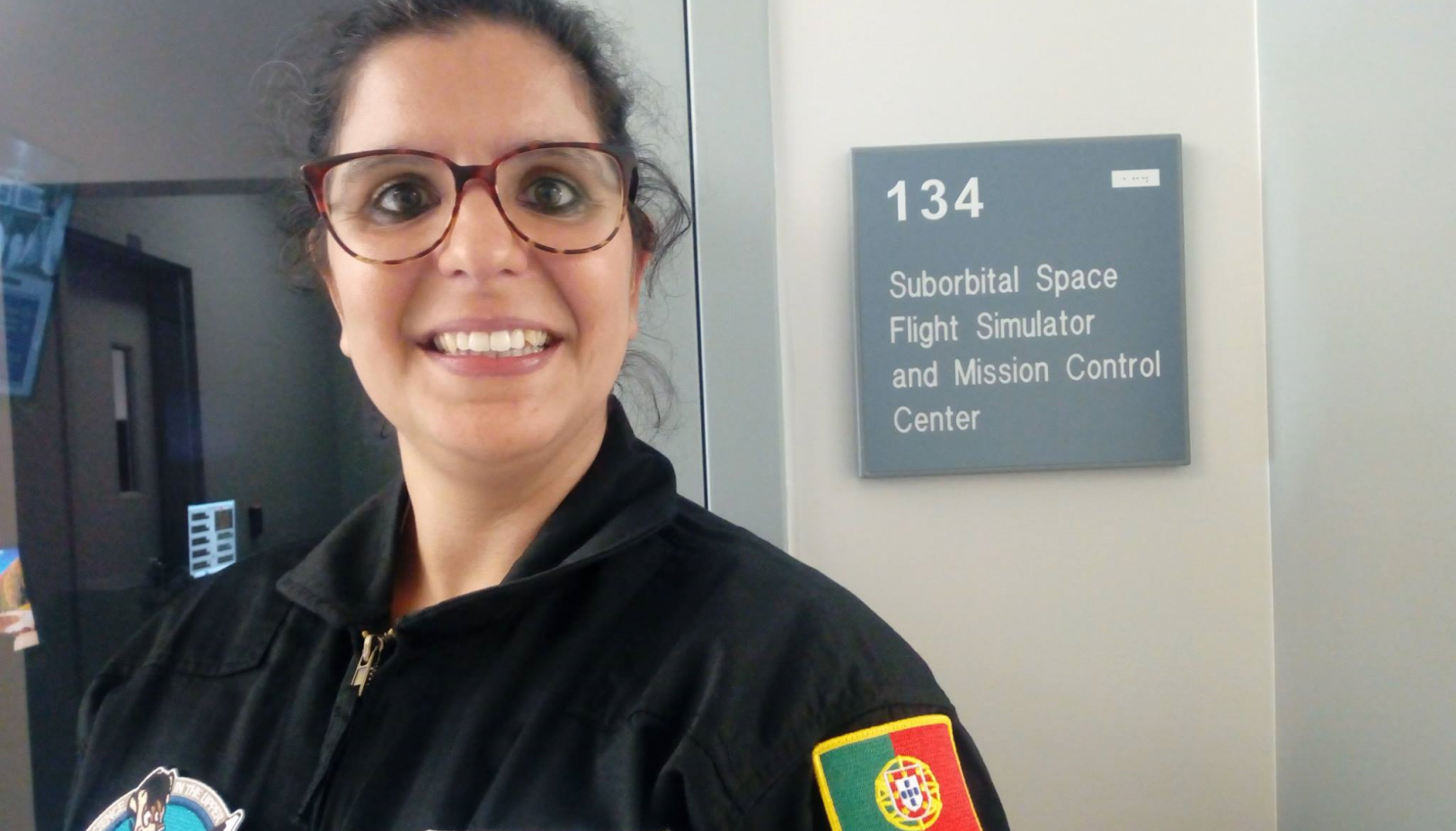First Portuguese Scientist-astronaut is a researcher at INESC TEC
In October, Ana Pires became the first Portuguese woman to obtain the scientist-astronaut diploma in the PoSSUM Scientist Astronaut Qualification Program, which was supported by NASA and taught at the Embry-riddle Aeronautical University (Florida, USA), one of the most prestigious universities in the United States for already having trained several astronauts.
26th December 2018
The researcher of INESC TEC and of the School of Engineering of Porto (ISEP) was one of the 12 selected persons among hundreds of candidates to participate in this course under the PoSSUM project – Polar Suborbital Science in the Upper Mesosphere.
From the rocks to robotics, from the ocean to space
Ana Pires has a degree in Geotechnical and Geoenvironmental Engineering from ISEP and a PhD in Geosciences from the University of Aveiro with a Specialisation in Geological Resources and Geomaterials.
The ambition of INESC TEC’s Centre for Robotics and Autonomous Systems (CRAS) of creating multidisciplinary teams, brought Ana Pires to INESC TEC, where the researcher is currently involved in several projects of underwater mining in order to try “to bridge the gap between the mineral resources and the applied technologies”, states the researcher.
The passion for rocks already existed, and it was then followed by the passion for robotics in 2017, mainly after Ana Pires started her Masters Degree in Electrical and Computer Engineering - Autonomous Systems, also at ISEP, in order “to speak the same language as the colleagues”, mentions Ana.
What does the deep sea and the space have in common? “The unknown”, answers Ana. And this fascination for what is yet to be revealed is what made Ana apply for the PoSSUM programme.
The PoSSUM programme
The goal of the project is to prepare the candidates for a suborbital space flight as scientists and to train scientist-astronauts or according to the categories of NASA, the so-called “Mission Specialist” or “Payload Specialist”. The preparation course lasted for one and a half months and included a theoretical part and a practical training in aeronautics and aerospace, where it was possible to carry out a simulation of a mission.
(photos credits: PoSSUM)
In Florida, the researcher had theoretical classes and lived some experiences that the aspiring astronauts live. “I didn’t have any knowledge about the space. Everything was new to me. I learned a lot. Everything was new. Everything was a challenge”. Physiology, remote sensing and image acquisition were some of the themes addressed in the course. The practical classes were quite demanding.
“We had the opportunity to simulate a mission by using a specific suit, to train in aerobatic aircrafts in an area of habituation for G forces and to train in the hyperbaric chamber in order to observe the hypoxia effects”, tells Ana Pires.
Besides Ana, colleagues from another countries such as Mexico, France, USA, Estonia, Colombia and Canada with completely different profiles – from aerospace engineers, to astrophysics, to doctors, and to pilots participated in the 2018 course, Class 1802. “The exchange of experiences between people from different countries, cultures, backgrounds is one of the most rewarding aspects” highlights Ana Pires.
Bring INESC TEC to space
For Ana Pires, the fact that the course can open doors and create closer ties both at a personal and institutional levels is one of the biggest advantages of being part of the PoSSUM family. “Besides bringing know-how to INESC TEC, by applying what I’ve learned, the course can also help to strengthen collaborations with the PoSSUM project and with the space industry in general”, states Ana.
“Personally, there are methodologies and techniques related to the remote sensing and image acquisition that were addressed in this course that can be perfectly applied to the researches that I carry out at CRAS and ISEP in the areas of ocean geotechnologies, modelling and mapping applied to GIS”, ends Ana Pires.
Through the participation of the researcher in this programme and course, a direct connection to the Space Industry is created, which can be a relevant strategy and a line of action to be created and developed in the institutions with which the researcher works.
Ana Pires was already invited to make another specialisation of the POSSUM project, related to technologies for the study of lunar geology and Mars, so she is already preparing her next trip to the United States of America.
The researcher mentioned in this news piece is associated with P.Porto-ISEP.


